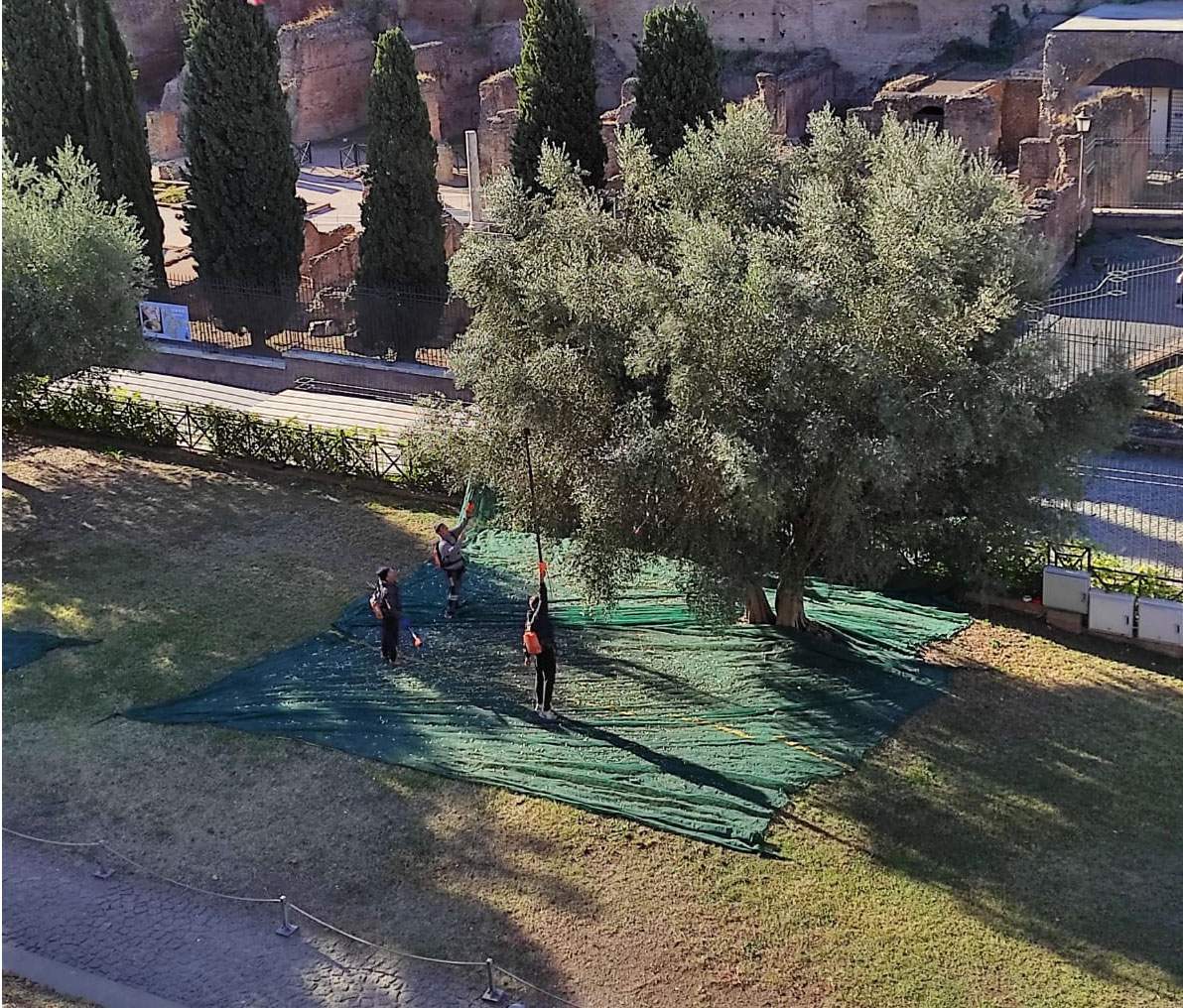In Rome, the Colosseum is preparing to produce its own olive oil, made from the olives of the trees found in the Archaeological Park. The olive harvest around the Flavian Amphitheater began this morning at 9 a.m., and upon completion, the fruits of the olive trees that abound between the Colosseum, the Palatine and the Roman Forum (there are 189 plants found in the Park area) will go through a small mill specially installed for the occasion under the Arch of Titus. Olives will then be pressed -- in real time.
The initiative, says the Colosseum Archaeological Park, intends to enhance the historical link between extra virgin olive oil and ancient Rome, also reinforced by the recent establishment of the “Olio di Roma IGP” (the designation got the green light in the Official Gazette last May), a product with a fruity aroma obtained from olives of the varieties Itrana, Carboncella, Moraiolo, Caninese, Salviana, Rosciola, Marina, Sirole, Maurino Pendolino, Frantoio and Leccino for a minimum of 80%, and with a production involving the entire province of Viterbo and some municipalities in the provinces of Rome, Rieti, Latina and Frosinone.
The idea of producing a Colosseum oil was born in December 2019, when the project that will lead to the creation of Palatinum oil (this is the name of the product) was launched. “The project,” director Alfonsina Russo had said at the time, “the result of collaboration with Coldiretti Lazio and OP Latium, was born to enhance the role that agriculture played in antiquity and was the basis of the material and ethical wealth of the Romans. The recovery of the olives adds to the charm of the landscape, represented by the approximately 200 olive trees present in the PArCo, also the virtuous intent that these products not be lost but be destined to produce agricultural and cultural quality through a popular program open to our varied public, related to the production of oil, cultivation techniques and its historical evolution.”
The oil that had been produced in the test phases of the project in December 2019 (120 liters in all) had not been put on the market, but given to charity or used as part of tastings. Now, however, there seems to be an intention to put the bottles of the oil of the ancient Romans on the market, also on the strength of the PGI label it will be able to use from this year. So will the Park be able to count on a product that will add further value?
Image: the olive harvest at the Colosseum Park.
 |
| Rome, Colosseum oil is born, made with olives from the Archaeological Park |
Warning: the translation into English of the original Italian article was created using automatic tools. We undertake to review all articles, but we do not guarantee the total absence of inaccuracies in the translation due to the program. You can find the original by clicking on the ITA button. If you find any mistake,please contact us.